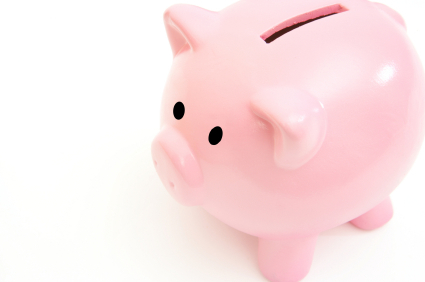Are You Being Frugal, or Just Plain Cheap?
by Dale S. Brown | September 2, 2011

in a previous post, I described how I was able to become economically independent of my job. To do this, I had to clarify my values around spending. This included becoming more frugal.
In today’s society, frugality can lead to accusations of “cheapness.” But there’s an important difference:
Being frugal means finding the least expensive way to own a product or receive a service. Those of us on the path to plentitude, an economy based on sustainability, must be ethical as we do this.
Being cheap refers to owning a product or receiving a service in a way that exploits other people. It can also refer to exploiting yourself.
Here are some examples of frugality vs. cheapness from different areas of my life:
Gift Giving
Generosity is a key value for me, so it’s important to me to give people gifts that they can use and appreciate. Yet I need to do this within my means.
Frugal: Finding the least expensive, most environmentally friendly way to give someone a gift that you know they really want.
Cheap: Reviewing your regifting pile and selecting something—anything!—that you think the recipient might be able to use, even if you aren’t sure they’ll find it useful or appealing.
Eating
I love eating with other people and dislike eating alone. Eating together is an important way to make friends and build community. But my food bills need to be reasonable.
Frugal: Cooking at home, inviting friends to share a meal, and eating out at less-expensive restaurants.
Cheap: Giving less than your share in group restaurant bills or skimping on the tip.
Driving
Of course it’s great to bike or walk somewhere if you can—to get the exercise, save on gas, and reduce pollution. But for many of us, driving is a necessity because our communities fail to provide pedestrian friendly roads, public transit, or bike paths.
Frugal: Organizing your errands so you drive less. A side benefit is getting the errands done faster and more efficiently, freeing up more time for you to do other things.
Cheap: Always asking your friends to drive you places (unless of course you graciously return the favor in some other way that really works for them).
Shopping
Let’s face it, we’re always going to need certain “stuff,” and most of the time we’ll need to buy it. But we can do this within our ethical and financial guidelines.
Frugal: Determining the least expensive way to buy an item, and finding the best possible quality at the lowest possible price. This might involve comparative shopping, spending time online, and talking to your friends.
Cheap: Visiting a specialty store and spending a lot of time talking to the clerk to learn about an item and decide what you want, then going online to buy it. This deprives employees of their commissions, and the store loses the profit they deserved from talking to you, which can cut into their own business.
Freecycling
Frugal: Noticing something that you want on Freecycle (an online service that allows people to share free items), emailing the person who listed it, and obtaining the item.
Cheap: Seeing something that looks interesting on Freecycle and pouncing to get the item even though you don’t really need it and someone else in your area might have greater use for it but may not have immediate Internet access. Or, picking up the item and realizing that it isn’t going to work for your needs but taking it anyway, even though someone else might really be able to use it.
Each of us has to work out the distinction between being frugal and being cheap based on our own circumstances and social network. In today’s materialistic world, people who are frugal are often unfairly accused of being cheap. And sometimes, the discipline of watching your pennies and dollars can cause you to value them too much—leading to actual cheapness.
The important thing is to think about your values and to do your monthly review of whether or not your spending is in accordance with your values. My previous blog described some spending strategies that definitely were frugal. And my first blog, My Story of Frugality: Breaking My Economic Dependence on My Job, explains the general philosophy behind my spending decisions.
Dale S. Brown works on a portfolio of projects that empower people both in personal growth and political power. She lives in Washington, D.C. and is a guest blogger for New Dream.

